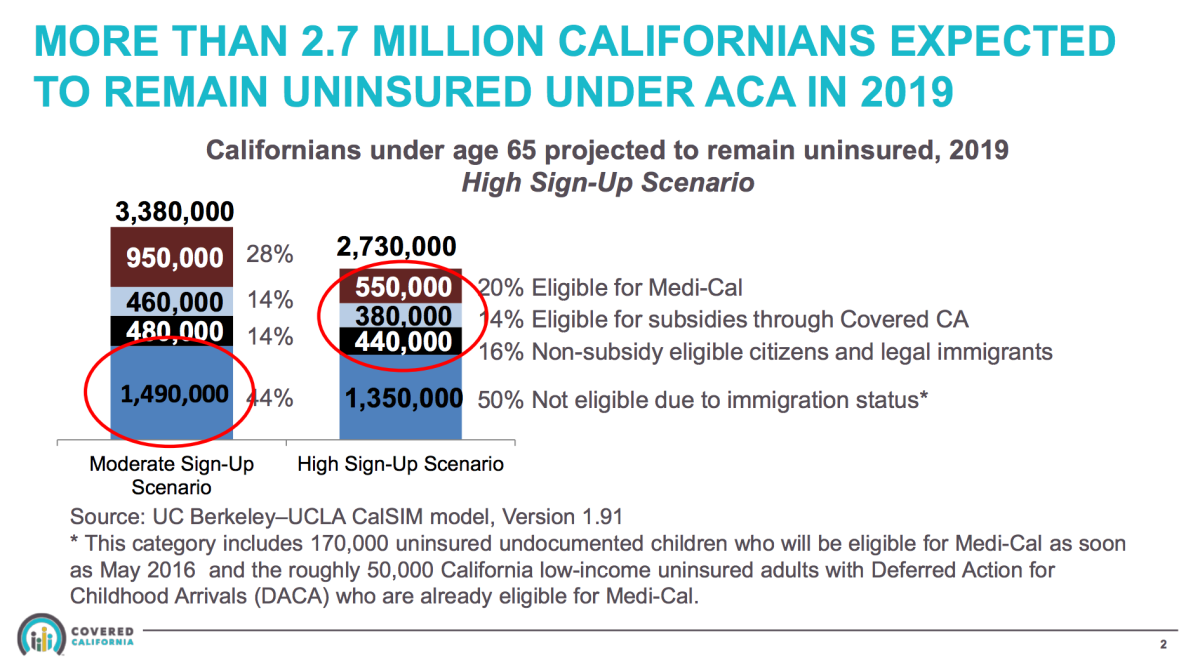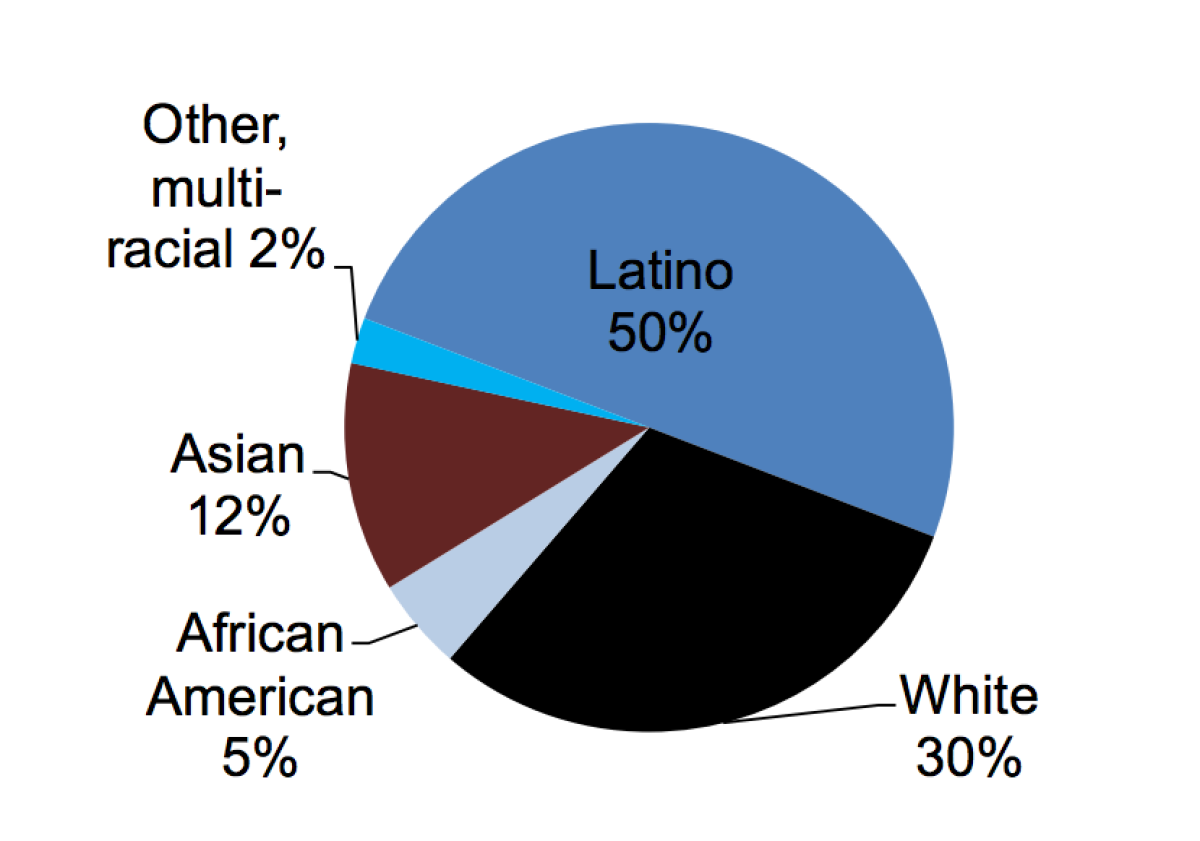California’s Obamacare exchange takes a step to bring immigrants in the U.S. illegally into the pool
- Share via
Enhancing its position as one Obamacare exchange that takes its job seriously, Covered California on Thursday took a significant step toward bringing health insurance to the largest single group still on the outside looking in: immigrants in the U.S. illegally.
On the surface, the exchange's board didn't do much. It simply produced for the Legislature an analysis of a proposal to seek a so-called Section 1332 waiver, which covers "innovation" in exchange designs. The Legislature must approve the waiver application, which then must be weighed by the U.S. Department. of Health and Human Services. Ultimate approval in Washington is by no means assured, the Covered California staff advised the board.
"This is somewhat symbolic," said Covered California's chair, Diana Dooley, the state's secretary of health and human services. But "symbolism is important."
This is somewhat symbolic, (but) symbolism is important.
— --Covered California Chair Diana Dooley
But the move was interpreted by healthcare advocates as effectively a green light to seek the waiver. A measure to do so already has been introduced in the Legislature. "The analysis says this is workable and feasible and could be done this year," said Anthony Wright, executive director of the advocacy group Health Access California. Although no formal vote was taken, several board members expressed at least implicit support for the idea of providing immigrants in the U.S. illegally with access to plans through Covered California.
Denying immigrants in the country illegally access to the Affordable Care Act exchanges was a tic in the enactment process in 2010, plainly aimed (unsuccessfully) at securing Republican votes. The measure bars those residents from purchasing health plans through the Obamacare exchanges even with their own money and at full price.
It's one of those punitive anti-immigrant policies that infect our political thinking, like denying immigrants in the U.S. illegally the right to apply for drivers licenses, because what's not to like about having millions of untested drivers tooling around our highways and byways, making the roads less safe for everybody? (California last year became one of 10 states consigning this self-destructive policy to the dustbin, by opening the licensing process to qualified immigrants in the country illegally.)

The result is that as many as 1.5 million California residents may be ineligible for Affordable Care Act coverage because of their immigration status, according to Covered California estimates. That's more than 40%, and possibly half, of all uninsured individuals in the state. (See graphic above.) Immigration status is only one factor in their missing out on insurance; even if eligible under a waiver, many may not be able to buy it, because the law will continue to prohibit granting residents in the U.S. illegally the tax subsidies that make Obamacare coverage affordable.

The exclusion of so many state residents is a problem in part because the large uninsured population undermines a key goal of expanding healthcare, which is to improve public health generally, not just among families that can afford it. No one gains to have members of the community walking around sick. It also complicates delivery of health coverage to members of families in which some members are eligible for health coverage and others are not.
California's move to extend greater coverage to children in the country illegally may, ironically, have exacerbated that problem. Gov. Jerry Brown last year signed a measure to provide state-subsidized Medi-Cal coverage to about 170,000 children age 18 and younger without legal status, starting next month. The policy will cost about $132 million a year, but the Legislature opted not to extend coverage to adults in the country illegally , which would have raised the cost to as much as $740 million.
As a result of the policy, in some "mixed-status" families the children will be covered while one parent may have legal status and the other lack documentation. California rightly is concerned that fears of legal exposure by those in the U.S. illegally may dissuade such families from seeking coverage even for eligible members, an obstacle that may be reduced by allowing all family members to obtain exchange-based coverage whether subsidized or full price.
Keep up to date with Michael Hiltzik. Follow @hiltzikm on Twitter, see his Facebook page, or email [email protected]
Sign up for Essential California
The most important California stories and recommendations in your inbox every morning.
You may occasionally receive promotional content from the Los Angeles Times.








